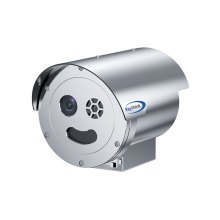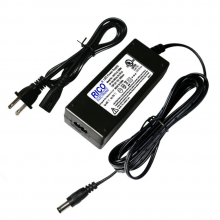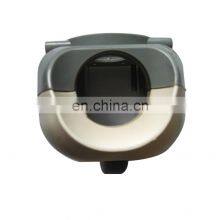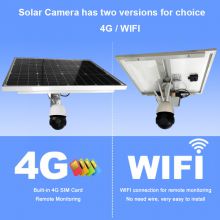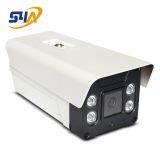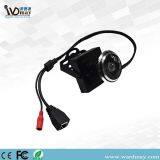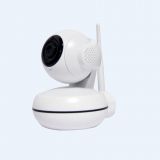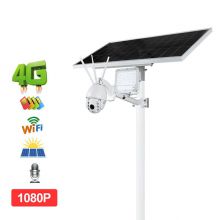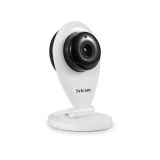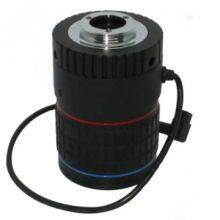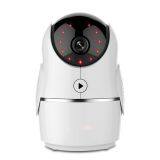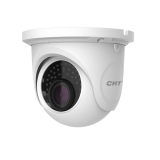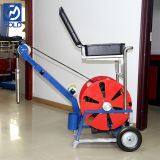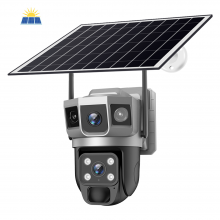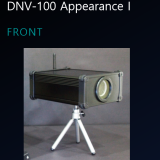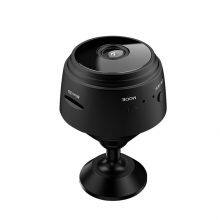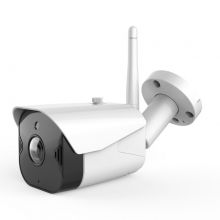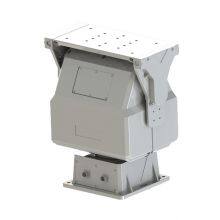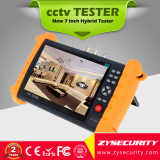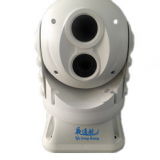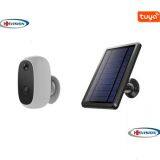In a time when headlines move fast and peace of mind moves slower, locking down the places that matter to you has never felt more urgent. Many folks now lean on CCTV camera systems because they deliver live video feeds and that warm, reassuring sense that someone-something-is watching your back. Homeowners, retailers, and part-time landlords alike keep these cameras trained on doorsteps, aisles, and driveways in hopes of spotting trouble before it knocks. That trust usually comes from built-in night vision, motion alerts that ding your phone, and HD footage clear enough to make out a license plate or a familiar face.
A CCTV camera closes the loop on almost every modern security plan. The video shoots wheels straight to a small clutch of monitors, not out for anybody to grab. Because that signal stays locked away, the gear works quietly and discreetly. You'll spot these units hanging above parking lots, tucked in hallways, or peering across loading docks. An older unit may run on analog cable, yet newer IP versions push crystal-clear HD pictures and let you log in from a phone halfway across the country. Most setups wire footage into a DVR or NVR so the yesteryear's events are just a click away.
Installing a few CCTV cameras gives your home a watchful eye that never blinks. The mere sight of those lenses can scare off would-be burglars, who often pick easier targets. Night vision and motion sensors mean trouble can still be caught during blackouts or heavy rain. Live feeds pop up on a tablet or smartphone, so a late-night alert no longer leaves you guessing. Most systems let you scroll back through hours or days of clips, turning what-if worries into calm answers.
Picking the right CCTV system starts with knowing the difference between analog and IP cameras. Analog models send video down a coax cable straight to a DVR that crunches the footage. They tend to be easier on the wallet, yet the picture quality usually lags behind what modern users expect. IP cameras, by contrast, ride on your data network, offering sharp video and extras like digital zoom or a built-in mic. Their ability to plug in almost anywhere and mesh with alarms or smart locks makes them the go-to option for fresh installations.
Picking the right CCTV system comes down to whether you want cables everywhere or just a steady Wi-Fi signal. A wired camera setup gives you rock-solid video that won't wiggle out during storms or busy weekends because a cord is always in charge. If you know the cameras will stay put for years, the hassle of running good wire pays off. On the other hand, wireless cameras slip into odd corners where a spool of cable feels like dragging a garden hose uphill. That makes them great for rental homes, construction sites, or any spot that might flip the script in a hurry. Neither choice is wrong; the winner is whatever fits your life's rhythm at the moment.
Dome and bullet cameras are two popular styles of CCTV cameras, each with its unique benefits. Dome cameras are typically used for indoor security due to their discreet design and wide-angle coverage. They are less conspicuous and can be mounted on ceilings, making them ideal for indoor surveillance. Bullet cameras, on the other hand, are more visible and are often used for outdoor security. Their design allows them to house larger lenses, providing longer range and better image quality. The choice between dome and bullet cameras depends on the specific areas you wish to monitor and the aesthetic preferences for your security setup.
When you're shopping for a security camera, picture quality usually steps to the front of the queue. The moment you switch from standard-def to high-def, names like 1080p pop up, and suddenly faces on-screen look a whole lot sharper. Jumping to 4K video is like putting a telescope on that first HD view; four times the pixels fill the frame, and wide-open parking lots or busy lobbies stop feeling blurry. Stronger resolution also buys you more usable detail when dusk-heavy shadows start stealing color. In short, whether you land on that crisp HD spec or go all-in for ultra-sharp 4K, your watchful eye gains reliable benefits in tough lighting.
Putting in a wired security-cam setup is more than just plugging in a couple of boxes. Take a minute or two to pick spots that catch every blind corner and open gate in your yard or driveway. Run the coax or Ethernet lines from those perches back to the DVR or NVR, weaving the cables along walls or ceilings so they don't double as laundry lines later on. Bolt the cameras in place, hook up the plugs, and then dive into the menu to carve out motion zones and tweak the field of view. A quick walk-through, checking each screen for crisp video and steady frames, wraps up the project.
Wireless CCTV kits have become a homeowner-friendly favorite because you skip all the messy cables. Pick out spots where a thief or clown might show up, making sure each camera still catches decent Wi-Fi. Use the phone app the maker hands you, link the camera online, and tinker with alerts, motion zones, or whatever else feels right. Most bundles toss in a cloud-storage perk, so video clips live somewhere safer than your garage. Of course, routine quick peeks at power lights and signal bars keep everything running smoothly.
Night vision gives CCTV cameras their real superpower. Without it, a driveway can vanish once daylight fades. Most budget models rely on infrared-only light and shoot grainy black-and-white footage. A smaller number of pricier units boast color night vision and still deliver bright, full-hue scenes when evening light dips low. Those extra shades let you spot a red jacket or tell what kind of sedan just cruised past. For anyone serious about 24/7 protection, cameras with serious low-light chops are money well spent.
Motion detection gives your security cameras a smart edge. They register movement in set zones and immediately sound an alert or start recording; that way, you're not wasting storage on dull footage, and the flood of fake alarms dries up. A good zoom-whether optical glass or quick digital crop-lets you close in on whatever counts, turning a distant blur into sharp detail. That extra eye is a big win when you're watching over sprawling lots or busy alleyways where little stuff can slip past.
Modern CCTV cameras offer more than just a steady eye; many now come with built-in sound. With this feature, the footage is paired with whatever noise is happening on-site. Two-way audio ups the game even further. It turns the camera into a walkie-talkie, letting you talk to whoever is standing right in view. That can be huge at a front door, where you can greet a delivery driver or scare off a would-be thief with just your voice. Adding sound changes the entire security picture and can help you react faster when trouble brews.
A: An IP camera-short for Internet Protocol camera-is a digital eye that talks to your home router instead of a TV-like coaxial cord. Because the signal rides the web, you can peek at a live feed from anywhere your phone catches a bar. Almost every model shoots in high-def these days, and many slip right into the same app that controls your smart door lock and voice assistant.
A: Both an NVR (Network Video Recorder) and a DVR (Digital Video Recorder) act as the hard drive for your camera footage, but they speak different languages. An NVR hooks up to IP cams and grabs the video over the network, letting you park the cameras practically anywhere. A DVR sticks with old-school analog gear and captures the signal as it flows from each camera's cable. Generally, an NVR dishes out sharper clips and gives you the freedom to place cameras on any reachable LAN port.
A: One neat perk of a Power over Ethernet camera is that it runs on just one cable. That single wire delivers both power and the data feed, so you skip the hassle of dragging extra extension cords around. For jobs in a warehouse corner or under an eaves where outlets don't sit nearby, that tidy solution speeds things up more than you might expect.
A: Dome cameras are popular for indoor security due to their discreet design, wide angle of view, and resistance to tampering. They are ideal for monitoring large areas and can blend seamlessly into various environments, making them a versatile choice for indoor security.
A: Absolutely; many wireless models thrive under rain, snow, or blazing sun. The cord-free placement means you can mount one on a fence post or a second-story balcony without wrestling cables for half the day. Just be sure to grab the weatherproof version and double-check that it packs things like infrared night vision, or that flexibility disappears after sunset.
A: Most experts will tell you to pick a camera that can shrug off rain and snow, so check the weather-resistance rating first. Pair that with IR night vision and high-def video, and you'll get a clear image no matter how dark or stormy it is. A two-way audio channel is a bonus; it lets you talk back to whoever or whatever walks past your property line.
A: Video feeds act like a second pair of eyes on your house, watching even when you're asleep or at work. Just the sight of a camera is often enough to make a would-be intruder think twice. If trouble still crops up, motion alerts and time-stamped clips give police the proof they need to act.
A: Every clip your cameras record has to land somewhere, and thats where the hard drive steps in. A 1-terabyte drive might keep a week's worth of footage, while a multi-terabyte model stretches that to months. The bigger the storage, the longer you can rewind and show exactly what happened yesterday, last summer.
